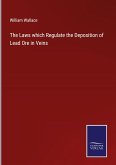Inequality is not an abstraction or a mere theoretical speculation; it makes itself tangible in the bodies of the oppressed from the South. Imperialism is the most appropriate category to understand this global inequality. It is urgent to give substance, according to our current times and struggles, to this powerful concept in explicative and historical terms associated with the struggles of peoples for their liberation. Imperialism is both a concept and a native category of emancipation projects from the South. Understanding how imperialism acts today, through which mechanism it acts, defining the depth of its crisis and the possibilities of alternative hegemonies, allows us to re-edit our commitment to the liberation of our people in the Global South. It helps us realize that, to the greatest extent possible, we should close the wound that implies the spoliation of our bodies, our culture, our common goods and our jobs. The essays in this book argue against neoliberal globalization, against the 'there's no choice' argument. They call into question the role that imperialist countries give to our Southern economies as the ones that guarantee cheap food; the new (old) forms of labour exploitation; the characteristics of competence between large-scale capitals; a new military strategy of the United States in the context of the crisis of its hegemonic project; and the nodal points to interpret the hegemonic succession we are living in as an opportunity and as a risk at the same time. Contributors: Prabhat Patnaik, Emiliano López, John Smith, E. Ahmet Tonak, Atilio A. Borón, Gabriel E. Merino
Hinweis: Dieser Artikel kann nur an eine deutsche Lieferadresse ausgeliefert werden.
Hinweis: Dieser Artikel kann nur an eine deutsche Lieferadresse ausgeliefert werden.








